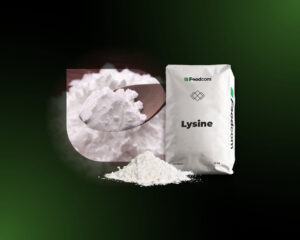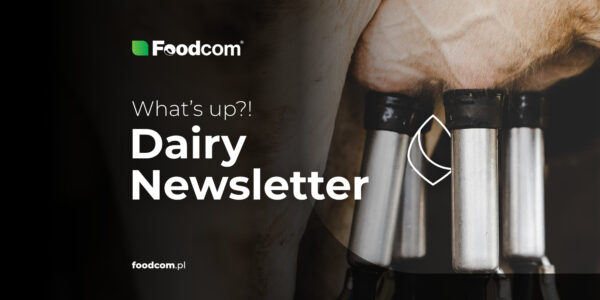- Methionine prices are rising due to supply issues and increased demand.
- Demand boosts for tryptophan and L-lysine lead to higher prices.
- IFF sells its pharmaceutical unit to Roquette for $2.85 billion to focus on core businesses.
Hello Partners!
Welcome back to our Newsletter!
The latest issue of our newsletter highlights new perspectives and challenges in the chemicals sector. Changing prices for key ingredients, global tensions and strategic decisions by leading companies are shaping a dynamic market landscape. Join us as we analyze these developments to understand how they will impact the direction of the industry and what strategic approaches market leaders are taking as they face new challenges.
Let’s take a look at what else is happening on the market!
Products of the Week!
Methionine
Methionine prices are trending upwards in March 2024, driven by rising demand in areas such as animal feed and food supplements. Contributing factors include production problems at one of China’s Methionine factories and a temporary slowdown in the industry in China related to the Spring Festival celebrations, which could limit the global supply of this amino acid. In addition, the stabilization of the economic situation in the eurozone, the increasing optimism of companies and the decline in inflation could boost demand for methionine. Due to these factors, methionine prices are expected to rise further in the coming months.
Tryptophan
The Tryptophan market is characterized by rising prices due to increased demand from manufacturers of dietary supplements and animal feed, rising transport costs and limited supply. Increased purchasing activity in China is expected after the Lunar New Year, which could lead to further price increases. In addition, improving economic conditions in the US and Germany are reflected in higher consumer spending, which could also put upward pressure on tryptophan prices. Prices for this amino acid are expected to continue to rise due to steady demand and dwindling market stocks.
Lysine
Recent data indicate an increase in the price of L-Lysine, which could be attributed to a revival in animal production. With the increasing breeding of pigs and poultry, the main consumers of this amino acid in animal feed, the demand for L-Lysine is increasing. This increased demand tends to drive up prices, especially if it is supported by a stabilization or improvement in supply chains that may have previously been disrupted.
Citric acid
At present, market prices for citric acid remain stable. This continued price equilibrium may reflect effective supply chain management despite widespread global challenges such as production disruptions and geopolitical tensions.
Vitamin C
On the market, Vitamin C is characterized by consistent price stability, a trend that has continued over the past week. After a period of price increases over the last three months, we are now seeing a plateau, possibly reflecting a decline in demand that often correlates with the end of the period of increased infection rates.
What else?
In the western Indian Ocean, Somali pirates have hijacked a Bangladeshi-owned bulk carrier despite distress signals. The resurgence of piracy, together with attacks by the Houthi militia in the Red Sea, has increased the risks and costs for shipping companies. Despite international intervention, including a recent operation by the Indian Navy, there is growing concern about the return of piracy. While it is not as bad as it used to be, there are fears that it could get worse. Previous efforts to combat piracy have significantly reduced attacks, but reduced patrols and expired UN resolutions are weakening enforcement. Authorities emphasize the importance of strengthening law enforcement capabilities in Somalia, but the country’s resources are limited, raising concerns about its ability to effectively combat piracy.
International Flavors & Fragrances (IFF) has announced the sale of its pharmaceutical unit to Roquette, a French manufacturer of botanical ingredients, in a $2.85 billion deal. The move is aimed at focusing on higher margin businesses as demand for food ingredients and solutions softens due to higher interest rates and inflationary pressures. IFF has been divesting non-core business units to improve its organizational structure and reduce debt. Roquette, with annual sales of around 5 billion euros, wants to expand its global presence in the pharmaceutical sector. The acquisition is expected to be completed in the first half of 2025. IFF’s pharmaceutical division accounted for around 8% of the Group’s total turnover in 2022.




![Lysine market review 2026 [Global Report] Lysine market review 2026 [Global Report]](https://foodcom.pl/wp-content/uploads/2025/02/przeglad-rynku-lizyny-w-2025-600x300.png)




